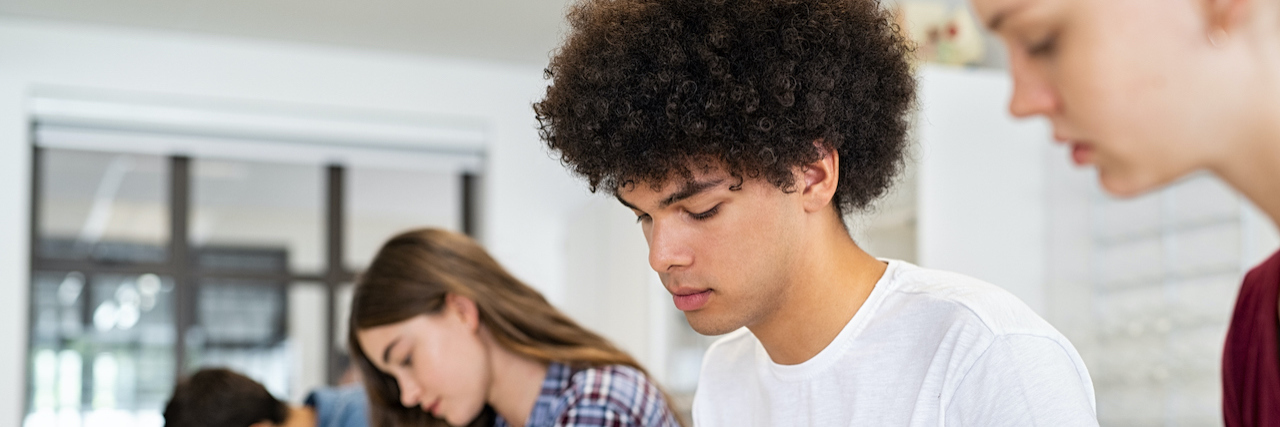Imagine you’re back in high school. What if you could take the day off because you’re having a bad mental health day? It sounds like a pipe dream, but it’s actually reality in several states, according to The New York Times. You don’t have to fake physical sickness anymore. You are entitled to take a mental health holiday.
Arizona, Colorado, Connecticut, Illinois, Maine, Nevada, Oregon and Virginia have all passed laws in the past couple years to allow students to be absent from school because of behavioral or mental health reasons.
Teenagers are under pressure now more than ever. Suicide is the second leading cause of death among teens. And between 2009 and 2019, a higher and higher percentage of American kids reported feeling sad or hopeless for at least two weeks “to the degree that they could not engage in their usual activities,” according to a report by the Centers for Disease Control and Prevention. If it’s that severe, parents may need to look to more long-term solutions like therapy and medication.
But another CDC report found the proportion of 12- to 17-year-olds checking into the ER for mental health issues rose 31 percent for most of 2020 compared with 2019.
Some schools shy away from calling them “mental health days” given the stigma of that phraseology. Utah has “wellness rooms” where students can take a breather for 10 minutes. In Colorado, some schools have created “oasis” rooms with a similar vibe but staffed with peer counselors.
Mental health days would’ve helped me so much when I was in Catholic high school in Chicago in the late ‘90s. I’m bipolar, but I wasn’t diagnosed yet. I did have symptoms. I was also devastatingly sensitive and I hated high school more than anything.
I had a few moments of agony at school, incidents that might seem minor, but to a bipolar mind felt catastrophic.
For example, one day, a popular girl lambasted me in the hallway, declaring: “You don’t belong at this school, dork! Nobody likes you.” It was a serious blow to my self-esteem. I ruminated over it for days, body aching from losing sleep. I believed her and I couldn’t stop the intrusive thoughts about how I was a loser.
My ego deflated, I definitely could’ve used a mental health day or two after that incident. Later, the girl would tell me that she didn’t believe what she said and was just trying to give me a “complex.” How nice.
Most kids at school belonged to a clique — the preps, the jocks, the cheerleaders, the richies, the geniuses, the geeks, the theatre nerds, etc. I didn’t really belong anywhere. I was a misfit back then, falling into no category.
I’ve been seen as a good writer for as long as I can remember, and I always got an “A” whenever I turned in a paper. Except once. Junior year I wrote a research paper on “Great Expectations” by Charles Dickens. I read half of the book and all of the CliffsNotes. I got the paper back with a large red “D” on it, with the teacher’s comment “a disappointing effort.” It sent me on a downward spiral.
Once again I was ruminating and repeating his assessment over and over again in my head — “a disappointing effort, a disappointing effort, a disappointing effort.” I lay in bed at night, almost all night, replaying those words. I went to school the next day feeling terrible on almost no sleep or at least terrible quality sleep, and a mental health day would’ve greatly helped at that time as well.
I now realize that I was experiencing bouts of depression inside the halls and walls of high school.
Southern California punk band Social Distortion sums up my feelings about high school nicely in the 1990 song “Story of My Life” — “High school seemed like such a blur. I didn’t have much interest in sports or school elections. And in class I dreamed all day, of a rock ‘n’ roll weekend.” Me to a T.
I was a punk. A freak. And I loved my “rock ‘n’ roll weekends.” There were really only two or three of us kids in high school who identified as punk.
The kids in the suburbs threw keggers. We punk city kids made our own fun. We cruised Chicago’s famed Lake Shore Drive blasting The Clash and The Sex Pistols. Every single weekend we went to punk and ska shows at the now-defunct legendary punk mecca of Chicago, The Fireside Bowl.
The only place I felt comfortable being myself was at live music venues. My Fireside friends all came from various different high schools throughout the city. I finally found my tribe of misfits. Weekends at the Fireside were a blast, and then Sunday night would roll around and I would get the blues before heading back to that hellscape of a high school that was St. Ignatius College Prep.
Although I didn’t have the luxury of taking “mental health days,” I ended up surviving high school, moving on to college, where I fit in perfectly with plenty of fellow punks and music geeks especially at the college radio station, where I became a DJ.
And while I no longer have rubber-duckie yellow bleached hair, skateboarding sneakers or a hoodie emblazoned with band logos, I’m still a punk. I’m still bipolar. And I’m proud that I came out on the other end just fine.
Much of these stories are relayed in more detail in my memoir The Bipolar Addict, available now on Amazon.
What incidents or episodes would’ve caused you to take a mental health day back in high school?
Getty image by Ridofranz

